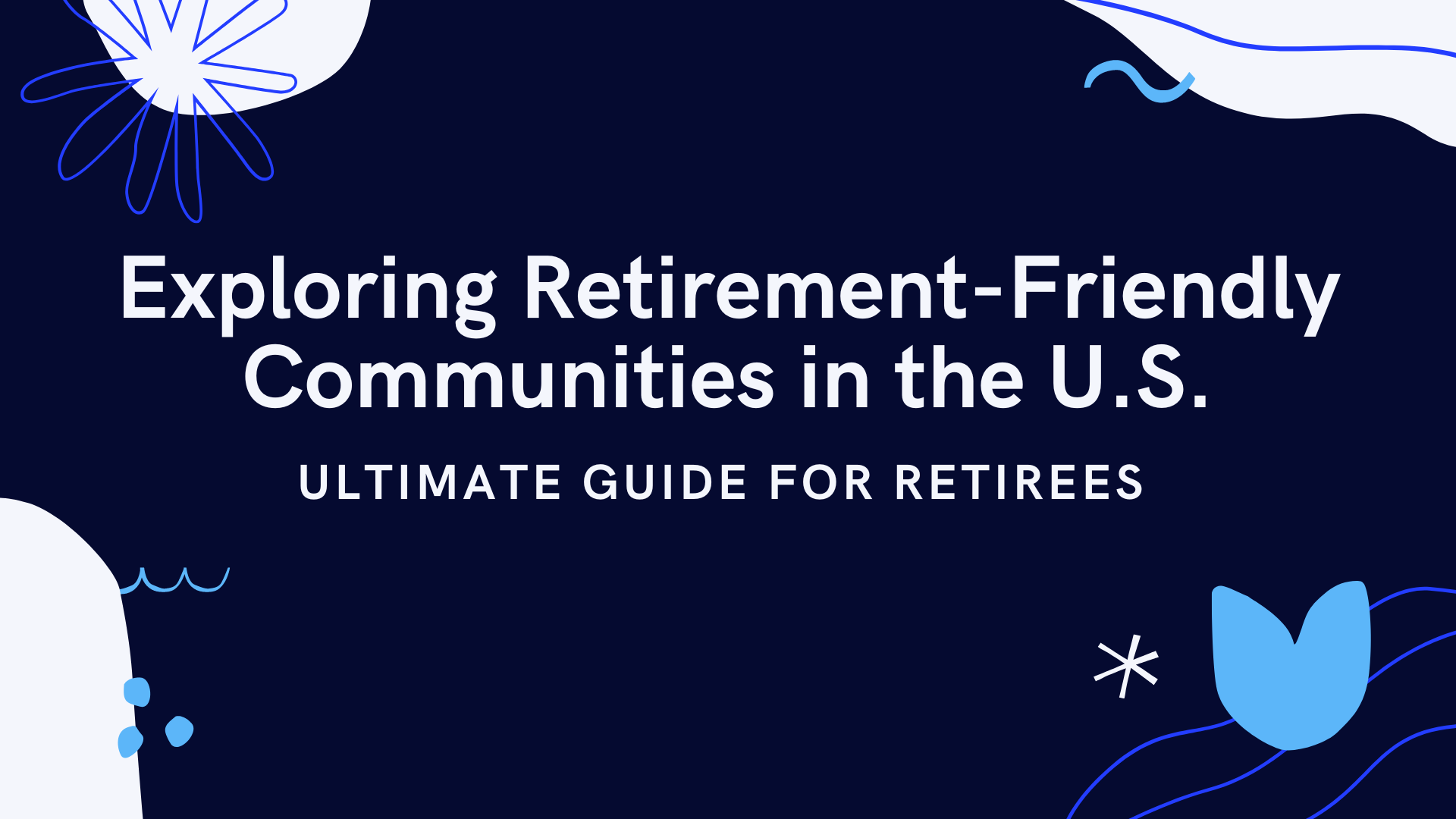Retirement Lifestyle: 14 Tips for Making the Most of Your Golden Years

Welcome to the golden years, a phase of life that offers the opportunity to embrace new experiences, pursue passions, and enjoy the fruits of your labor. Retirement is a significant milestone, and how you choose to shape your lifestyle during this time can greatly impact your overall well-being and happiness. In this article, we will explore valuable tips and insights to help you make the most of your golden years.
Here are 14 tips for making the most of this golden age;
Table of Contents
- Setting retirement goals
- Creating a retirement budget
- Managing your investments
- Working with a financial advisor
- Importance of physical activity
- Embracing Mindfulness and Inner Peace
- Exploring new hobbies and passions
- Maintaining a healthy diet
- Traveling and Exploring the World
- Joining community groups and clubs
- Giving Back to Your Community
- Nurturing Relationships with Loved Ones
- Embracing Technology in Retirement
- Making the Most of Your Free Time
1. Setting retirement goals
Retirement is not just about reaching a certain age or leaving the workforce; it's about embracing a new chapter in your life. To make the most of your golden years, it's crucial to set clear and meaningful retirement goals. Take the time to reflect on what truly matters to you and what you hope to achieve during this stage of life.
Perhaps you dream of traveling the world, experiencing new cultures, and creating lasting memories with loved ones. Maybe you aspire to devote more time to your hobbies and passions, whether it's painting, gardening, playing a musical instrument, or writing. Or, it could be that your goal is to find a sense of tranquility and contentment, focusing on self-care, personal growth, and well-being.
2. Creating a retirement budget
As you embark on the journey of creating a retirement budget, it's essential to approach it with a calm and focused mindset. Take a deep breath and embrace the opportunity to gain clarity and control over your financial future.
Remember, the goal is to design a budget that not only covers your essential expenses but also accommodates your desired lifestyle, providing room for enjoyment and fulfillment.
To begin, assess your current financial situation. Take stock of your income sources, such as pensions, Social Security, retirement accounts, and any other potential streams of income. Determine the monthly amount you can expect to receive and factor it into your budgeting process.
Next, examine your expenses and categorize them into essential and discretionary categories. Essential expenses include housing, healthcare, insurance premiums, utilities, and transportation costs. These are the necessary expenditures that you cannot do without. Be thorough in identifying and estimating these expenses as they will form the foundation of your budget.
Once you have accounted for your essential expenses, allocate a portion of your budget to discretionary expenses. These are the non-essential items that bring you joy and enhance your retirement lifestyle. It could include travel, hobbies, dining out, entertainment, and other activities that contribute to your overall well-being and happiness. Be mindful of striking a balance between enjoying your retirement and maintaining financial stability.
Throughout the budgeting process, be realistic and flexible. Understand that your financial situation may change over time, and your budget should adapt accordingly. Unexpected expenses may arise, and it's important to have contingency plans and emergency funds in place to handle these situations without derailing your retirement plans.
Consider seeking the guidance of a financial advisor who specializes in retirement planning. They can provide valuable insights and expertise tailored to your unique circumstances. A financial advisor will help you develop a comprehensive retirement budget, offer investment strategies, and assist in making informed financial decisions.
Remember, creating a retirement budget is not about restricting yourself or feeling deprived. Instead, it's about gaining a clear understanding of your financial picture and aligning your expenses with your priorities and values. A well-crafted budget empowers you to make intentional choices, ensuring that your financial resources are allocated in a way that brings you joy, security, and fulfillment.
Lastly, regularly review and reassess your retirement budget. Life is full of changes, and your financial situation and priorities may evolve over time. By periodically evaluating your budget, you can make necessary adjustments, identify areas for improvement, and ensure that your retirement plan remains on track.
3. Managing your investments
Review and assess your investment portfolio regularly to ensure it aligns with your changing financial needs and risk tolerance. Seek professional advice if needed to optimize your investments and make informed decisions. By keeping a watchful eye on your investments, you can safeguard your financial future and ensure a steady income stream during retirement.
Stay proactive in managing your investments to protect and grow your retirement nest egg.
4. Working with a financial advisor
Navigating the complexities of retirement planning can be overwhelming. Consider seeking guidance from a trusted financial advisor who specializes in retirement planning. They can help you develop a personalized strategy, navigate tax implications, and offer expert advice to ensure you are on track to achieve your financial goals.
Collaborating with a knowledgeable financial advisor can provide valuable insights and peace of mind throughout your retirement journey.
5. Importance of physical activity
Retirement is the perfect time to prioritize your physical and mental well-being. Staying active not only improves your physical health but also enhances your overall quality of life. Engage in regular physical activities that suit your fitness level and interests. Whether it's taking walks in nature, joining a fitness class, practicing yoga, or swimming, find activities that bring you joy and keep your body moving.
6. Embracing Mindfulness and Inner Peace
Mindfulness involves being fully present in the moment, without judgment or attachment to the past or future. Take time each day to practice mindfulness through activities such as meditation, deep breathing exercises, or simply immersing yourself in the beauty of nature. Embrace the power of stillness and silence, allowing your mind to settle and your inner wisdom to emerge.
Self-reflection is another important aspect of embracing mindfulness in retirement. Take moments to reflect on your values, desires, and aspirations. What brings you joy? What are your passions? Use this time to reconnect with your authentic self and identify what truly matters to you. Self-reflection can guide you in making choices and decisions that align with your innermost desires.
Cultivating a positive mindset is essential for a fulfilling retirement lifestyle. Choose to focus on the positive aspects of your life, practice gratitude, and surround yourself with positivity. Engage in activities that uplift your spirits, such as listening to inspiring music, reading uplifting books, or spending time with loved ones who bring joy and support.
7. Exploring new hobbies and passions
Consider joining clubs, classes, or workshops related to your newfound interests. Connect with others who share your passion and engage in collaborative learning and skill development. Embrace the learning process and the joy that comes with acquiring new skills and knowledge.
Pursuing hobbies and interests in retirement not only provides a sense of fulfillment but also helps maintain cognitive function, stimulates creativity, and adds richness to your daily life. Allow yourself the freedom to explore and indulge in
8. Maintaining a healthy diet
In addition to physical exercise, focus on maintaining a healthy diet. Pay attention to nutrition, ensuring you consume a balanced diet rich in fruits, vegetables, whole grains, and lean proteins. Stay hydrated, limit processed foods, and indulge in moderation. By nourishing your body with wholesome foods, you can boost your energy levels and maintain optimal health.
9. Traveling and Exploring the World
Plan your retirement travel adventures carefully, considering your interests, budget, and preferred travel style. Research destinations that align with your desires and create itineraries that incorporate the experiences you've always dreamed of.
Consider joining organized group tours, taking solo trips, or travelling with friends and loved ones. Remember, the goal is to enjoy the journey and embrace the freedom that retirement affords. checkout retirement-friendly communities to travel and enjoy your golden age
10. Joining community groups and clubs
Consider joining clubs, classes, or workshops related to your newfound interests. Connect with others who share your passion and engage in collaborative learning and skill development. Embrace the learning process and the joy that comes with acquiring new skills and knowledge.
Additionally, consider exploring new social opportunities and expanding your circle of friends. Join community groups, clubs, or volunteer organizations where you can connect with like-minded individuals who share similar interests.
Engaging in social activities provides a sense of belonging, companionship, and new perspectives, enriching your retirement experience.
Pursuing hobbies and interests in retirement not only provides a sense of fulfillment but also helps maintain cognitive function, stimulates creativity, and adds richness to your daily life. Allow yourself the freedom to explore and indulge in
11. Giving Back to Your Community
Consider the causes or organizations that align with your values and interests. Whether it's supporting local charities, mentoring young individuals, offering your expertise to nonprofits, or getting involved in community projects, there are numerous ways to give back and make a meaningful impact.
Volunteering in retirement offers an opportunity to connect with like-minded individuals who share your passion for making a difference. Join volunteer groups or associations that align with your interests, where you can collaborate, learn, and grow together.
Building relationships with fellow volunteers can create a sense of camaraderie and a support system as you work towards common goals.
Additionally, volunteering can provide a sense of structure and routine, especially if you're transitioning from a busy work life to retirement. It offers a sense of purpose and fills your days with meaningful activities that contribute to the greater good.
Volunteering can be as simple as dedicating a few hours each week to a cause or organization that resonates with you.
Moreover, your skills and expertise gained over a lifetime of work can be invaluable to organizations in need. Offer your knowledge and experience as a mentor, advisor, or consultant to nonprofits or startups. By sharing your wisdom, you can make a profound impact on the success and growth of these organizations.
Remember, giving back doesn't have to be limited to formal volunteering. Acts of kindness and small gestures can also make a significant difference. Whether it's helping a neighbor, volunteering at a local shelter, or donating to a cause you believe in, every action, no matter how small, has the potential to create positive change.
12. Nurturing Relationships with Loved Ones
Make it a priority to spend quality time with your family and friends. Plan regular gatherings, outings, or vacations together to create lasting memories. Engage in meaningful conversations, listen attentively, and express your love and appreciation for the people who matter most to you. Building strong bonds and a support system is essential for emotional well-being.
In nurturing relationships, it's crucial to be present and practice active listening. Show genuine interest in the lives of your loved ones, celebrate their achievements, and offer support during challenging times. A strong support network can provide comfort, encouragement, and a sense of belonging as you navigate the joys and complexities of retirement.
Remember, relationships require effort and communication. Stay in touch with distant friends and family through phone calls, video chats, or even handwritten letters. Celebrate milestones, birthdays, and special occasions to show your love and appreciation. By nurturing your relationships, you create a network of love and support that enriches your golden
13. Embracing Technology in Retirement
One of the key benefits of technology in retirement is the ability to connect with loved ones who may be far away. Video calls, social media platforms, and messaging apps enable you to maintain meaningful relationships with family and friends, even if they live in different parts of the world. Embrace these digital tools to bridge the distance and share special moments, stories, and laughter with your loved ones.
Furthermore, technology opens up a world of knowledge and learning opportunities. Online courses and educational platforms provide access to a vast array of subjects, allowing you to pursue new interests and expand your horizons from the comfort of your own home. Whether it's learning a foreign language, delving into history, or exploring the depths of astrophysics, the possibilities for intellectual growth are endless.
In retirement, it's never too late to acquire new tech skills. Learning how to use smartphones, tablets, or computers can greatly enhance your daily life. These devices offer convenience, entertainment, and access to a wealth of information at your fingertips. Explore tutorials, workshops, or local classes that cater to seniors, providing guidance and support as you navigate the digital world.
Moreover, the internet provides a plethora of online resources and services specifically designed for retirees. From online banking and shopping to healthcare management and entertainment streaming, these platforms offer convenience and accessibility. Embrace online tools and services that simplify everyday tasks and enhance your overall retirement experience.
While embracing technology in retirement, it's essential to maintain a healthy balance. Use technology as a tool to enhance your lifestyle, but also remember to unplug and engage in activities that nourish your mind, body, and soul. Find harmony between the digital world and the beauty of the physical world surrounding you.
14. Making the Most of Your Free Time
Effective time management techniques can help you maximize productivity while still allowing room for relaxation and leisure. Consider creating a schedule or routine that provides structure and purpose to your days, while also allowing for flexibility and spontaneity. This will help you stay organized and focused, ensuring that you accomplish tasks and make progress towards your goals.
Conclusion
However, it's equally important to embrace relaxation and self-care during your free time. Retirement is an opportunity to slow down, unwind, and prioritize your well-being. Engage in activities that promote relaxation, such as reading, practicing meditation or mindfulness, taking nature walks, or indulging in hobbies that bring you tranquility and inner peace.
Remember that retirement is not just about staying busy; it's about finding a sense of fulfilment and contentment in each day. Allow yourself to savor the simple pleasures of life, whether it's enjoying a cup of tea on a sunny morning, spending time in nature, or engaging in creative pursuits that bring you joy. Embrace the freedom to listen to your inner voice and honour your needs and desires.
Also Read; Exploring Retirement-friendly communities in the U.S
Lastly, self-care should be a priority in your retirement lifestyle. Take care of your physical, mental, and emotional well-being. Nurture your body through healthy habits, such as regular exercise, nutritious meals, and sufficient rest. Prioritize activities that bring you happiness and reduce stress, such as spending time with loved ones, practising self-reflection, and engaging in activities that ignite your passions.



